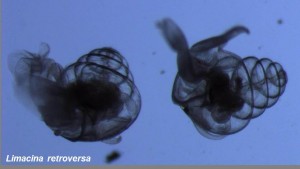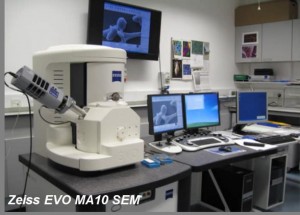Marine
ICES Science Fund success for MSS researcher
July 22, 2015 by Marine Directorate Communications No Comments | Category Marine Directorate general, Marine Directorate Science
In our blog in May, we featured an article about the International Council for the Exploration of the Sea (ICES) announcing seven awards for its 2015 ICES Science Fund Call.
Pablo Leon Diaz of the Phytoplankton Ecology Group in Marine Scotland Science was one of the winners with his proposal in collaboration with the University of Aberdeen entitled “Can pelagic gastropods be used to assess the impacts of ocean acidification?”. The fund provides 60,000 DKK (~5,700£) from June 2015 to May 2016.
Ocean acidification (OA) is a very topical issue in marine science. The increase of atmospheric carbon dioxide from anthropogenic activities and the subsequent uptake by the ocean is reducing seawater pH (increasing acidity and changing ocean carbonate chemistry). Identifying and assessing the impacts of OA on marine organisms is key to assessing the wider impacts of climate change on marine life, but there are currently few indicators to monitor for effects.
P lanktonic calcifiers are important components of the plankton community. Some contribute significantly to marine primary production and play a key role in global biogeochemical cycles such as the pelagic calcium-carbonate flux. Laboratory experiments examining the impacts of OA on these organisms have shown mixed results and field studies are scarce. This project will trial the use of scanning electron microscopy (SEM) of pelagic gastropod shells as a tool to assess the impacts of OA on the plankton community in the North Sea. The project will focus on zooplankton samples and sea water chemistry data collected at the Marine Scotland Science (MSS) monitoring site at Stonehaven on the east coast of Scotland.
lanktonic calcifiers are important components of the plankton community. Some contribute significantly to marine primary production and play a key role in global biogeochemical cycles such as the pelagic calcium-carbonate flux. Laboratory experiments examining the impacts of OA on these organisms have shown mixed results and field studies are scarce. This project will trial the use of scanning electron microscopy (SEM) of pelagic gastropod shells as a tool to assess the impacts of OA on the plankton community in the North Sea. The project will focus on zooplankton samples and sea water chemistry data collected at the Marine Scotland Science (MSS) monitoring site at Stonehaven on the east coast of Scotland.
Pelagic gastropods include the pelagic larvae of otherwise benthic gastropod species as well as truly pelagic species (holoplanktonic pteropods such as Limacina retroversa; see photo).
To assess the potential impacts of OA on this part of the plankton community, changes to pelagic gastropod shells will be examined using the SEM facilities at the Institute of Medical Science at the University of Aberdeen. This sensitive equipment can provide the high resolution images required to detect even the smallest changes on shell surface and allows additional X-ray microanalysis to be performed to look at changes in the chemical composition of shells. 
The SEM results will be reviewed with carbonate chemistry measurements and environmental parameters collected at Stonehaven to assess if any changes in structure (such as ‘dissolving’) or composition are associated with the environmental parameters monitored. The use of these techniques to produce a ‘tool’ to identify the impacts of OA on the plankton community will be evaluated.
More information:


Leave a comment